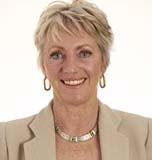
AT LAST month’s council meeting, Item H.1 on the agenda attracted some 200 people. Item H.1 was, of course, the Cowes to Stony Point car ferry business case. Afterwards the gallery emptied out – leaving a mere handful of people to witness the next item: the draft annual budget, which provides for total expenditure of some $99 million in Bass Coast in 2018-19.
Yes, I know, that word – budget. When I mention it, I see the eyes glaze over and the heads slowly bow and I know interest has flown out of the window. I have lost the audience, as was evidenced in our April council meeting.
Our draft budget has been available for public inspection since the April 18 meeting. We have held and continue to hold, community sessions across the shire. We’ve also called for submissions. The attendances at our sessions have been less than colossal. It would be fair to say that at some we’ve felt a little lonely.
Whilst the subject of finance can be dry and uninspiring, it’s imperative that we all, to some extent, have an understanding of it.
Every day I come across people who have questions and suggestions but lack an understanding of council finances. They may have heard of profit and loss statements and even perhaps have a mild understanding of a balance sheet in the normal commercial world, but when it comes to local government they’re not aware of the anomalies we face.
For instance, the State Government provides councils with grants to assist with the operations of council. It also reimburses councils for some of the expenses incurred in providing State Government services such as school crossing supervisors and home care services. Sometimes this funding is made in advance. Council is obliged to account for such “pre-payment” in the year the amount is actually received. That year the revenue (and resulting surplus) looks great. But what about the year that follows? That doesn’t look so good.
Sometimes Council resolves to fund an asset for the benefit of the community on land that we don’t own. We've allocated funding to the Wonthaggi Highball Stadium and the Cape Paterson Surf Lifesaving Club, which are both on Crown land. This money is treated as an expense on our profit and loss sheet instead of a community asset (which it really is). Again that affects the bottom line in 2017-18 and 2018-19.
These are just two of the challenges we face when trying to explain why in any one year we might not achieve a surplus in accounting terms. The overall trend, however, is positive and Council’s ongoing financial position remains strong.
Of course, there are some in the community who feel that Council should not operate as a commercial enterprise, focussing purely on a bottom line surplus, but instead look to improving infrastructure and delivering services to the community.
Another challenge is explaining our rates. We often hear complaints that Bass Coast is a high-rating council – mainly due to a comparison with metropolitan councils’ rates.
Going back to amalgamation in 1994, the commissioners who established the new combined Bass Coast council worked out how much was required annually to operate a new larger council. That is, all the staffing costs, materials and services to be provided and the capital projects. The total was then divided across the shire, proportionally, based on the value of your property. This is how all municipalities initially formed their respective rate base.
It’s pretty easy to see that the more properties, the less each property has to pay – economies of scale relating to increased density have a distinct advantage! The added advantage for the inner city councils is the fees and parking fines which can add millions to their budgets each year.
The most appropriate comparison for Bass Coast rates is not with large city councils but with similar-sized rural councils. The Know Your Council website clearly shows our rates are below the average.
If you have stayed with me thus far – I congratulate you. Maybe we’ll see you at the next budget session, if only to offer you a cup of coffee and biscuit.
View the draft budget online or at customer service centres in Wonthaggi, Cowes, Inverloch and Grantville. Community information sessions will be held in:
- Wonthaggi – Monday, May 7, 6.30-7.30pm, Old Wonthaggi Post Office, corner Watt Street and McBride Avenue
- Facebook – Tuesday, May 8. 6.30-8pm, www.facebook.com/basscoastshire